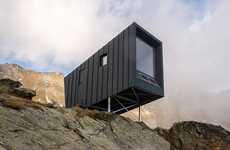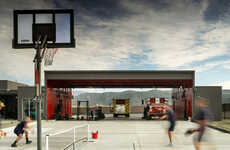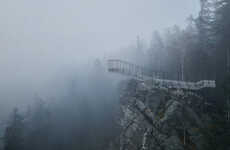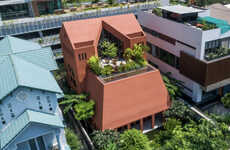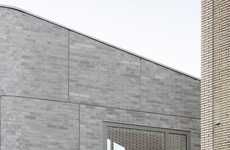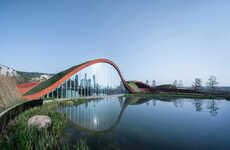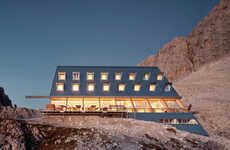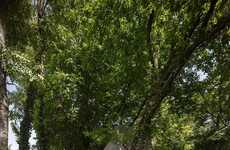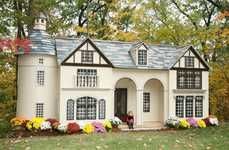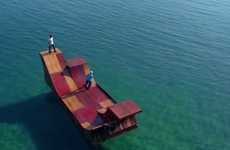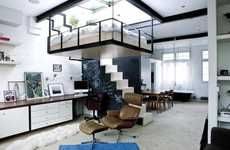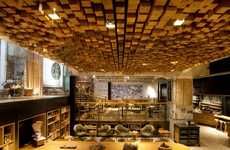
The Berg Meister Wolf Fire Station is Unconventional
Shiori Mine — June 3, 2012 — Art & Design
References: bergmeisterwolf.it & contemporist
If you were driving past the Berg Meister Wolf fire station in Margreid, Italy, you would probably think nothing of it at first. However, once you discover its purpose and architectural design, you will likely stare up in astonishment.
Designed by the architects of Berg Meister Wolf, this peculiar building serves as the local volunteer fire brigades' headquarters. The station was constructed by drilling three chambers into the side of the mountain. Potential falling rocks and landslides are prevented by an enormous concrete wall resting parallel to the land. The interior where the trucks and volunteers are stationed have been outfitted with unassuming materials like wood and steel. The cavern walls have been plastered over to soften the harsh rocky surface.
To conserve prime agricultural land, the community decided to construct this station into the rocks. The Berg Meister Wolf fire station is a real-life bat cave that will have passing citizens exclaiming, "holy smokes Batman!"
Designed by the architects of Berg Meister Wolf, this peculiar building serves as the local volunteer fire brigades' headquarters. The station was constructed by drilling three chambers into the side of the mountain. Potential falling rocks and landslides are prevented by an enormous concrete wall resting parallel to the land. The interior where the trucks and volunteers are stationed have been outfitted with unassuming materials like wood and steel. The cavern walls have been plastered over to soften the harsh rocky surface.
To conserve prime agricultural land, the community decided to construct this station into the rocks. The Berg Meister Wolf fire station is a real-life bat cave that will have passing citizens exclaiming, "holy smokes Batman!"
Trend Themes
1. Underground Architecture - Exploring innovative ways to construct buildings underground, utilizing natural resources and reducing impact on prime land.
2. Disguised Infrastructure - Developing unconventional designs to blend essential facilities into the environment, minimizing visual impact and creating surprises for passersby.
3. Sustainable Land Use - Adopting strategies that maximize land use efficiency and minimize disturbance to agriculture, fostering harmony between urban development and rural productivity.
Industry Implications
1. Architecture and Construction - Opportunity for architects and construction firms to pioneer innovative underground structures that integrate seamlessly with the natural landscape.
2. Urban Planning - Urban planners can explore the concept of concealed infrastructure to preserve the aesthetics of cities while providing essential services to the community.
3. Environmental Protection and Conservation - Organizations focused on environmental preservation can advocate for sustainable land use practices like building underground facilities to minimize disruption to valuable agricultural land.
4.5
Score
Popularity
Activity
Freshness


